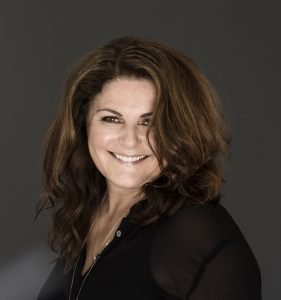Killer Nashville Interview with Sara Blaedel
An Interview with Sara Blaedel
Killer Nashville sits down with best-selling author Sara Blaedel to discuss her latest book, THE DROWNED GIRL.

KN: Is it more difficult to create a new main character or build upon a character that is well known by your readers?
For me, whether introducing a new character or digging into the evolution of an already existing one, it all falls under the same umbrella. And, I love to engage in both. I’m especially excited about character development; it’s always the people who get under the reader’s skin and drive the action, don’t you think? It is the characters we think about long after we’ve finished reading, who we connect and relate to, and whom we look forward to getting back to in a series. While it takes a lot of time to construct a new character, making sure they possess layers and flaws and strengths and authentic characteristics, having a character evolve and grow according to their experiences and maturity, as we all do in one way or another, also takes a great deal of focus and commitment to getting it right.
KN: Is Camilla based upon your own experiences and/or observations as a journalist?
While I wouldn’t say any of my characters is based on me or meant to be a stand-in for me, I definitely use what I know, when appropriate, in the building of a character’s life and work. In this case, absolutely; I was a journalist for years and tapped into that part of my life to support Camilla’s profession, how she approaches her work, and that whole world. It’s super-fun!
KN: I love the growth in Camilla’s character when she became more of the solution to racism instead of perpetrating stereotypes. Was this based upon something you have experienced on one side or the other?
Again, I come at this in a sort of hybrid fashion, a mix of the real and personally experienced and what I perceive would be the genuine experience of my characters. I spent a great deal of time developing them from the start- no single figure in any of my books shows up without a history and backstory of their own that I’ve worked on, along with a construction of them from the ground up and inside out. It is essential, for me, that my characters’ personalities and choices reflect what they’ve been through so far, whom they meet and have relationships with along the way, and what they witness in the world around them.
KN: Was it difficult to publish The Drowned Girl in a different language than it was originally written? What were some of the pitfalls? Why was the original title changed?
This is an excellent question! For an author, and I am sure I speak for many (if not most) here, any adaptation is always a scary thing. There is a great deal of reliance and trust required of the translator, who must organically capture the nuances of the plotting, characterizations, description, and timing. I am always super-obsessed with making sure that happens, and I have a person who carefully studies each one of my translated books to make sure that nothing has been missed or misinterpreted. It’s amazing how getting one word or phrase even just a little bit off-base can change the tone or direction of storytelling. The changing of titles is most often left to the publisher of the translation as frequently the original title doesn’t completely work in that specific language. It is important for storytellers to protect the integrity of their work and their visions, while at the same time trusting the publishers and people they work with, who want to do everything to support the book and make it accessible to their marketplace. I always try to find that balance between staying very involved and allowing some space to let the experts do their thing.
KN: I felt the setting in a small town where some might not be as willing to accept outsiders made it perfect by creating the tension needed. Racism is a tough topic to conquer, what type of research did you do to bring it to the readers so realistically?
Research plays a massive role in my preparation for writing. It is a part of the author’s job that I truly love and look forward to. Of course, this goes back to my days as a journalist, wherein research and accuracy are imperative. I go deeply, mining into nearly every aspect I write about, from the locations (I go to the sites where my action takes place, and breathe that air and study the people, the geography, the very essence) to the professions (authenticity is crucial), to the history and natives, and everything in between.
I have always been fascinated by the differences between small towns and big cities; I’ve personally lived in both. I’m intrigued by the familiarity of life in smaller, more contained, more traditional, and more slowly-changing towns, where, typically, everyone knows everyone else, and there is very little anonymity and lots of secrets simmering beneath the surface. Which means, treasure troves of potential tension and suspense and drama. A playground for a crime fiction author!!
